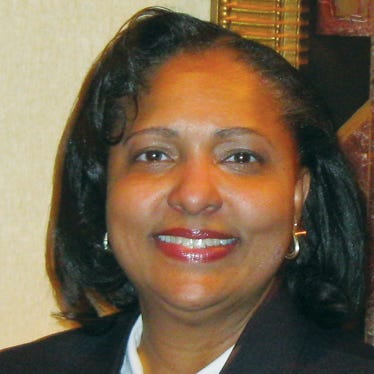Columbia Nutritional’s female CEO attributes career growth to mother
As we come to the end of Women’s History Month, Heather Fairman of DF Guardian Consulting Inc. places the spotlight on Brea Viratos, CEO of Columbia Nutritional.

Columbia Nutritional CEO Brea Viratos was one of two dynamic women leaders in the industry who participated in a panel for the SupplySide West Nov. 4, 2022 session, “Supply chain strain causes business interruption.”
She attributes her rise to CEO to the many people who have collectively added value to her life and professional career—the first and most impactful being her mother. “Always be yourself,” her mother constantly told her. This set the foundation for Brea as a leader.
When you speak with Brea, her conversations always lead to her excitement and passion about elevating her team, as she notes the contribution and input they provide to the success of the company; as well as serving her brand-owner customers.
All the five leaders were asked these similar questions about their leadership journey. What follows is Brea’s unique story.
Heather Fairman: Brea, can you expand on the personal experiences and the influencers in your life that had an impact on your leadership style and development?
Brea shared that she grew up and was raised in a single-parent household while living in a very poor area. “My mother was always herself,” Brea went on to share. Her mother told her to always be herself and not worry about what others thought about her. As long as she is honest and authentic, she’ll do well.
This was a message Brea said she constantly heard in her home from her mother and what became a key foundation of her leadership. “Even if they don’t want to hear it, if it’s honest, just make sure you share it.” Brea, however, quickly noted tactful communication and the way a message is delivered is really important as well. This likely was a key strength that she employed when having to deliver tough and disappointing news to her customers about ingredient supply shortages and unavailability.
Brea went on to add others had an impact on her, not only her mother. She echoed what she had said on the stage, that her outlook on others’ impact comes from every single person who she has spoken with. She views these daily interactions with people as contributors to her growth as a leader; from strangers who encourage her with compliments, to her staff who she gives the autonomy to offer personal comments and feedback about her performance.
Without these interactions, she said, she can’t improve. As a leader, she welcomes this very rewardingly. “I love it,” she said. She’s created a corporate culture free from fear of opening up to the leader. Without question, this is a unique and courageous practice, yet one that speaks to the resilience that Brea and her team likely demonstrated during the challenges Covid-19 presented. “Everybody has value,” she said, “and everybody has a different perspective; and those different perspectives are what’s key to driving a successful business.”

Columbia Nutritional's CEO Brea Viratos on Pico de Orizaba (Mexico), the third-highest mountain in North America”.
Fairman: How has the impact of these personal experiences and the influencers in your life affected the way you relate to your staff and serve them?
Having shared some of this in her prior response, Brea went on to expound on her leadership approach with her teams. “It all comes back to listening and communication,” she stated. With the many influencers in her life, one very special former boss in her earlier years impacted her professional career greatly. He was a former supervisor at a previous company. “He was the best leader that I’d ever worked under,” she said.
Brea shared her supervisor engaged her in dialogue with him concerning how he could do better in how he served her and others. She stated she was “not so high on the totem pole then” as a laboratory technician, yet he took the time to ask her questions and get her feedback about how he was doing as a leader.
He was a corporate global leader in the company who gave her the opportunity to engage in conversation with him, encouraging regular dialogue between them. This was the professional model of leadership that influenced her style of leadership. “It’s not just a top down, but a bottom up," Brea stated. "Making sure that we understand the needs of the people."
She said she ensures to place her staff in the right work roles and equip them with the right tools to be successful. This is a compelling example of her former supervisor, that left an indelible impact shaping her own leadership style and culture.
Fairman: Can you share briefly how you became the CEO of Columbia Nutritional?
“Dumb luck?!” Brea exclaimed. We both spontaneously emitted boisterous laughter as though some drunken chorus. It was a funny moment.
Surely that was not the case, but rather a matter of the right timing, right place as Brea went on to relate. Because of her known gifting and skill for projects, Brea said she was hired to turn around the quality group at the time, given certain deficiencies.
In about 2018-2019, the company had a third-party audit that resulted in a very low standard of cGMP (current good manufacturing practices) performance. As she worked with the team and developed a continuous quality improvement program for the company, its adherence to compliance greatly improved and the quality group was turned around.
However, due to other corporate deficiencies, she concurrently had to oversee the operations of the organization. A restructuring firm was subsequently hired to help with the company reorganization. As a result, she had to give them a facility tour, and a good understanding of the business.
The restructuring firm consequently gave a recommendation to the company board to appoint Brea as COO. Ultimately, based on a final evaluation and determination, the restructuring firm concluded Brea then be appointed as CEO of the company. The board concurred. To date, board members continue their support of her leadership and Brea likewise assuredly notes, “They are super supportive. I’ve got a great board.”
As she “sees” people, she was “seen” by others and promoted to greater leadership. That is no “dumb luck.”
Fairman: How do you see your present role as a contract manufacturer impacting the industry and your clients in particular?
“Education, education, education,” Brea emphatically repeated. Helping educate the company’s brand-holder customers to focus on doing the right thing is tantamount—making sure the betterment of the industry is driven through education, particularly the education of its customers. “We want to ‘explain the why’ behind the rules, and the industry guidance."
FDA’s cGMP regulations in 21 CRF 111 have "been there for a while, but we keep upping the game to improve our industry," she added. Brea makes it a corporate passion, goal and committed effort to make not just her company’s customers successful, but the industry as a whole, noting, “We want the industry to be successful.”
Fairman: What is the feedback that you get from some of the brand owners that you deal with?
Brea responded, “We’ve gotten some great feedback. One brand holder decided to move its entire portfolio to us even though it had a manufacturer that could get its product quicker.” She went on to share that the customer chose to do this and wait because it trusted the credibility and integrity of the company to produce quality and compliant products.
Brea briefly went on to explain that her company “qualifies” its customers through multiple conversations to ensure they are a good fit for a partnership. “We want to ensure our customers align with our values so that we build true partnerships rather than just a transactional relationship.”
Fairman: What one statement of encouragement and hope would you give to the industry amid continued disruptions and challenges?
“Seeking out good partnerships with good businesses run on integrity is the way to help overcome a lot of the challenges in the supply chain,” Brea pointed out.
An example she gave was when her company purchased materials that came back as adulterated; it was very transparent in sharing this with its customers, expressing a commitment to proper corrective action. “Integrity is our No. 1 value,” she stated. Together with its partners, the company worked through this challenge and overcame the setback.
“When you choose to build relationships with people who have high integrity, you can overcome anything in the supply chain,” Brea concluded.
About the Author
You May Also Like

